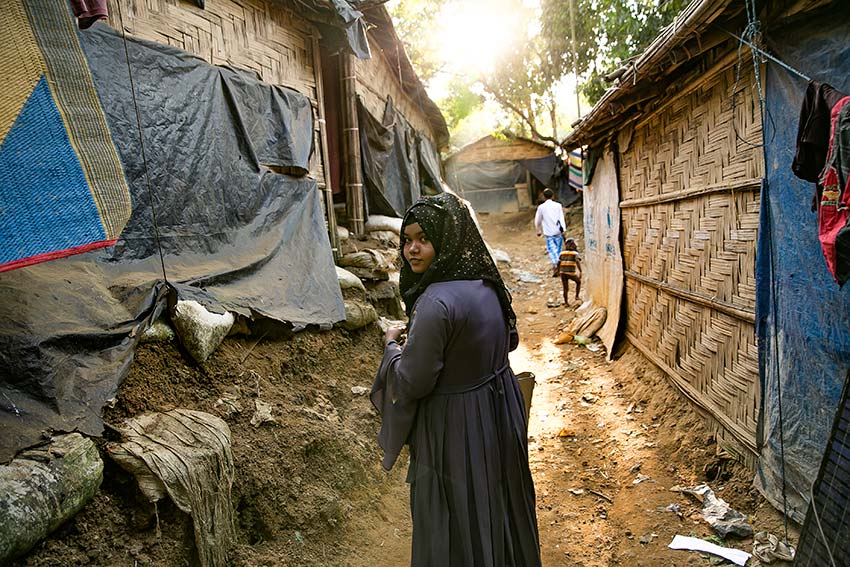
Photo Credit: Allison Joyce/Getty Images
In the 2019 season of A Deeper Look podcast, we examined the darker side of development — the unintended consequences of development efforts, the paradoxes that we confront, the harm that the best intentions can sometimes cause and the lessons we can learn by discussing uncomfortable, even threatening, topics.
Each one of my guests brought a unique perspective to this theme, yet it’s possible to distill a number of common concerns. More than one guest described the long-term nature of development as a journey, and many emphasized the importance of humility in this work. Although our theme for the year was dark, the perspectives, insights and commitment of my guests give me hope that we, as a community, are more willing to acknowledge our weaknesses and do better.
If you haven’t had an opportunity to tune in, I encourage you to listen to all of the episodes in this season’s A Deeper Look on Apple Podcasts, SoundCloud or wherever you get your podcasts. Here are some takeaways.
1. Admit that we are flawed.
Approaching development with humility is crucial. Paul O’Brien, Vice President for Policy and Advocacy of Oxfam America, reminds us that “humility requires an acceptance of the constant imperfection of trying to rebalance our world to be more fair.”
2. Constantly rethink and renew what you are doing.
A common theme is the idea that development is a journey. Alex Thier, former Director of the Overseas Development Institute, says, “Learning means actually taking in that information, processing it and applying it to a new context, because context is always new, even in the same country.”
3. Collaborate for sustainable results.
Partnership has been a recurring theme since we started the podcast in 2017 and for good reason. As Sonal Shah, entrepreneur and Founding Executive Director of the Beeck Center for Social Impact and Innovation at Georgetown University, explains, “By ourselves, this problem is too big to solve.”
4. Agency is essential.
Development cannot happen effectively without promoting empowerment to act, and trust is the secret sauce of successful development activities. David Dodson, President of MDC — which addresses inequality in the United States — says that this is important across the globe. “Do people believe things happen to them or that they cause things to happen?”
5. Engage program participants to be responsible for their own destiny.
Muzabel Welongo, Founder and Executive Director of Resilience Action International, grew up in refugee camps in East Africa. He points to the pressing need to reconcile a system that makes refugees dependent on external support with the need for people to be more self-reliant. “Development doesn’t happen until the people that are concerned are truly involved in whatever innovations or interventions that we are targeting towards them.”
6. Be aware of the gatekeepers.
The development landscape can be a crowded place, with many people working on a host of issues and often no direct line between donors, intermediary organizations and agents, and the intended beneficiaries. This can obscure motivations and distort outcomes in unintended ways. Sarah Chayes, author of Thieves of State, advises, “Be careful who your intermediary is between you and the community that you wish to assist or learn about.”
7. Listen more.
Carrie Hessler-Radelet, President and CEO of Project Concern International (PCI), addresses sexual exploitation and abuse and the need to listen to survivors. She says, “That is how we learn to do our job better, and that is how we are able to make profound transformative change within our own selves.”
8. Think of the end user as our customer.
Several guests highlighted lessons from the private sector that could generate more sustainable results. Raj Kumar, founding President and Editor-in-Chief of Devex, reminds us, “In the end what really matters in private business is the customer. The customer is always right. Somehow in private business, we are able to get down to that customer level and to say it really matters if they are happy with the product.”
9. There doesn’t have to be a trade-off between development goals and environmental goals.
Climate change is a growing concern in development. Heather Tallis, Global Managing Director and Lead Scientist for Strategy Innovation for the Nature Conservancy, disagrees with a prevailing assumption that addressing it can only be done through gradual actions. “Bringing the environment into development thinking does not have to be slow and painful. … It can be fast and actually better for your sort of bottom line of development impact in the end.”
10. Advocacy plays a crucial role.
Like policymaking, advocacy can be critical in ensuring support for effective global engagement. Tom Hart, North America Director of the ONE Campaign, says, “It is building those networks of support that give people the cover to do the right thing. I think that’s the art and what I love about advocacy.”
11. There is a difference between being important and doing important things. Choose the latter.
Ultimately, development is about working together for a collective goal. As many of my guests note, that requires humility. Alicia Phillips Mandaville, Vice President for Global Programs at IREX, puts it this way, “When other people start to take credit for something that you made go right, that’s when you know it has worked well and that’s where you split between being important versus doing something important.”
